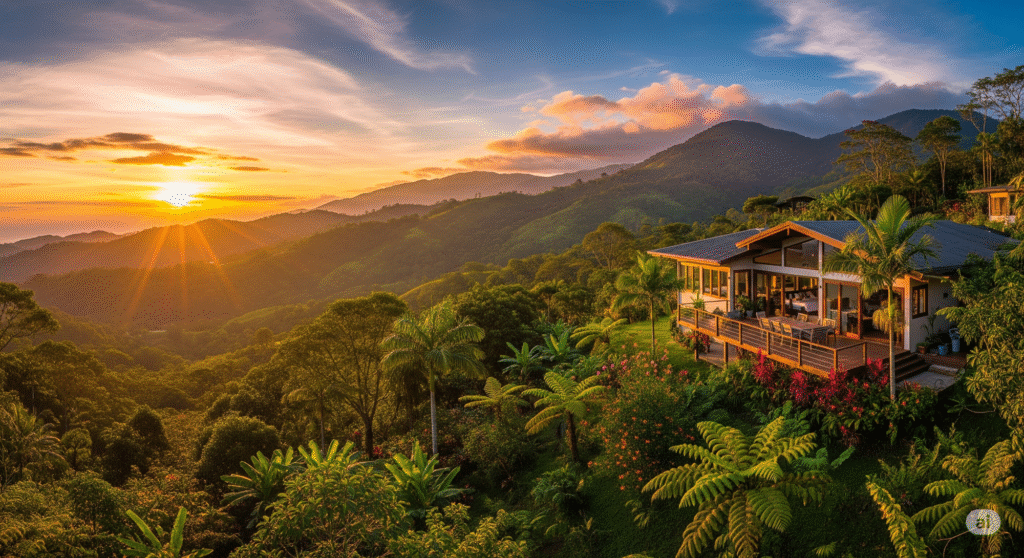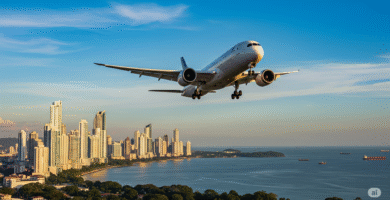
Introduction: Why Panama Real Estate Is a Top Choice for Expats in 2025
In 2025, Panama real estate for expats continues to be one of the most attractive property markets in Latin America. Stable economic growth, a dollarized economy, and a variety of lifestyle options—from bustling city life to tranquil mountain towns—make Panama a prime destination for foreign buyers.
Unlike many countries, Panama allows foreigners to buy property with the same rights as locals. That means you don’t need residency or a special permit to own real estate here. However, the process is far from a simple transaction—it involves careful legal review, local market knowledge, and professional guidance.
Can Foreigners Buy Property in Panama? The Legal Framework Explained
Panama’s laws are friendly to foreign investors. You can purchase property in your name, in a corporation, or a private foundation. Full property titles are available in most urban and developed areas, while certain beachfront and island properties may involve concession rights rather than outright ownership.
The main legal difference for foreigners is not in the right to buy, but in navigating the paperwork. Title verification, tax obligations, and registration procedures can be complex, especially for those unfamiliar with local practices.
Best Places for Expats to Buy Property in Panama
Location matters, and your ideal area will depend on your goals:
- Punta Pacífica & Costa del Este (Panama City) – Modern, luxury living with high-rise condos, close to shopping malls, restaurants, and international schools. Popular with executives and investors seeking strong rental yields.
- Boquete (Chiriquí Province) – Cool climate, mountain views, and a large expat community. Ideal for retirees seeking peace and natural beauty.
- Coronado (Pacific Coast) – A blend of beachfront living and convenience, with grocery stores, golf courses, and a growing expat scene.
- Bocas del Toro – Laid-back Caribbean island lifestyle, popular with eco-minded buyers and those seeking vacation rental potential.

Cost of Moving to Panama in 2026: The Complete Guide

Accommodation in Panama City: Stay Smart, Save More, Enjoy Fully
Defining Your Goal: Residence, Vacation Home, or Investment
Before you start browsing listings, define your purpose. A recent group of expatriates who purchased property in 2024–2025 emphasized that clarifying your goal early determines the location, budget, and type of property you should target.
Buying for permanent residence will push you towards areas with year-round amenities and community services. A vacation home may prioritize scenic views and proximity to airports, while an investment property requires strong rental demand and manageable maintenance.
The Buying Process Step-by-Step
- Hire a Licensed Real Estate Agent – Work with professionals who have experience with foreign clients.
- Engage an Attorney – Essential for title verification, drafting the purchase contract, and registering the property.
- Offer and Due Diligence – Once your offer is accepted, your attorney will check for liens, unpaid taxes, or disputes.
- Purchase Contract & Payment – Often involves a promissory note and a partial payment up front.
- Transfer of Title – Final registration at the Public Registry confirms your ownership.
Hidden Costs and Taxes Every Expat Should Know
While Panama has no restrictions on foreign ownership, buying property involves costs beyond the sale price:
- Transfer Tax: 2% of the property’s registered value.
- Capital Gains Tax: 3% if you sell the property later.
- Legal & Notary Fees: Between 0.25% and 1% of the purchase price.
- Appraisals & Due Diligence: Variable costs depending on property type and location.
Expats stress the importance of budgeting for these expenses to avoid surprises.
Financing Options for Foreign Buyers in Panama
Foreigners can obtain mortgages in Panama, but conditions are often stricter than in their home countries. In 2024–2025, interest rates for non-residents typically range between 5–7%, with down payment requirements of 50–70%.
For this reason, many expat buyers recommend purchasing with cash or a large deposit to simplify the process and negotiate better terms.
The Critical Role of Legal and Licensed Real Estate Agents
Recent expat buyers unanimously recommend hiring both a lawyer and a licensed real estate agent. Panama’s property laws are straightforward in theory, but the reality is that mistakes in documentation can cause delays or legal disputes.
Working with professionals ensures that:
- The property has a clean title.
- Taxes and fees are calculated correctly.
- The transaction complies with all local regulations.
Due Diligence: Protecting Your Investment
Due diligence is not optional—it’s essential. A lawyer should verify that the property is free from liens, mortgages, or legal disputes before you commit any funds.
Several expats stressed that skipping this step could lead to serious financial and legal consequences, especially in rural or coastal areas where property history may be less documented.
Final Thoughts: Making a Smart Real Estate Move in Panama
Panama’s real estate market remains a compelling choice for expatriates in 2025. The combination of legal accessibility, varied lifestyle options, and stable currency makes it stand out in the region.
However, the best outcomes come to those who:
- Define their objectives clearly.
- Work with licensed professionals.
- Prepare for additional costs.
- Conduct thorough due diligence.
As one 2025 buyer summarized:
“The legal process can be complex, but with the right lawyer and agent, it’s straightforward. The peace of mind—and the property—you gain are worth every step.”
5 FAQ: Panama Real Estate for Expats
1. Do I need residency to buy property in Panama?
No. Foreigners can purchase property with the same rights as Panamanians.
2. What are the main property taxes?
Transfer tax (2%), annual property tax (varies, some exemptions), and capital gains tax (3% on sale).
3. Can foreigners get a mortgage?
Yes, but expect higher interest rates (5–7%) and larger down payments (50–70%).
4. What areas are most popular with expats?
Panama City (Punta Pacífica, Costa del Este), Boquete, Coronado, and Bocas del Toro.
5. What’s the most important step in the buying process?
Hiring a lawyer for due diligence to ensure the property has a clean title and no legal issues.
